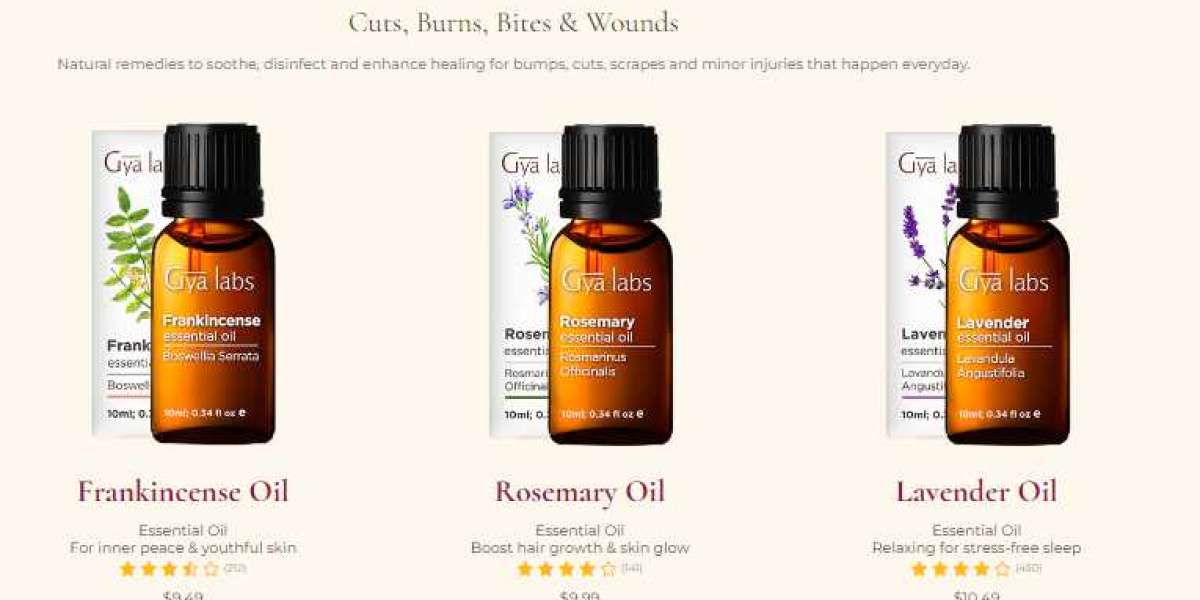Essential oils have gained popularity in recent years as a natural alternative to traditional medicine. Among their many purported benefits, wound healing stands out as a potential application. This article aims to explore the scientific evidence behind essential oils and their effectiveness in facilitating the wound healing process. So, grab a cup of tea ☕️ , and let's dive into the world of essential oils for cuts and wound healing!
Understanding Essential Oils:
Essential oils are highly concentrated plant extracts derived from various parts of plants such as leaves, flowers, bark, or seeds. These oils capture the distinct aromas and beneficial properties of the plants they are derived from. Due to their chemical composition, essential oils can possess antimicrobial, anti-inflammatory, and antioxidant properties.
The Role of Essential Oils in Wound Healing:
Antimicrobial Properties: Many essential oils exhibit antibacterial, antifungal, and antiviral properties, making them potential allies in preventing wound infections. Oils such as tea tree ?, lavender ?, and eucalyptus ? have shown promising antimicrobial effects against various pathogens. However, it's important to note that essential oils should not be used as a substitute for medical treatments in severe infections.
Anti-inflammatory Activities: Inflammation is a natural part of the wound healing process. However, excessive or prolonged inflammation can delay healing. Some essential oils, including chamomile ?, frankincense ?, and rosemary ?, have been found to possess anti-inflammatory properties, which can help regulate the inflammatory response and potentially accelerate wound healing.
Antioxidant Effects: Essential oils rich in antioxidants, such as rose ?, geranium ?, and citrus oils ?, may contribute to wound healing by reducing oxidative stress. Oxidative stress, caused by an imbalance between free radicals and antioxidants, can impede the healing process. The antioxidative properties of certain oils can help protect cells from damage and promote tissue repair.
Scientific Evidence:
While essential oils show promise in wound healing, it's essential to base their usage on scientific evidence. Several studies have investigated the efficacy of essential oils in promoting wound healing:
Tea Tree Oil: Research suggests that tea tree oil possesses antimicrobial properties that can aid in wound healing and prevent infections. It may also reduce inflammation and promote the production of collagen, a key component in wound closure.
Lavender Oil: Lavender oil has shown interesting wound healing properties in studies. It has been found to accelerate wound closure, exhibit antimicrobial effects, and reduce inflammation.
Frankincense Oil: Studies indicate that frankincense oil may enhance wound healing by promoting cell growth, reducing inflammation, and preventing scar tissue formation.
Safety Considerations:
While essential oils can offer potential benefits, it is crucial to use them safely:
Dilution: Essential oils are highly concentrated and should be diluted with a carrier oil before application to the skin. Undiluted essential oils can cause skin irritation or allergic reactions.
Patch Testing: Before applying any essential oil to a wound or sensitive area, perform a patch test on a small area of healthy skin to check for any adverse reactions.
Consultation: If you have a severe or infected wound, it is important to consult a healthcare professional for appropriate medical treatment. Essential oils should not replace conventional wound care under such circumstances.
Conclusion:
The use of essential oils in wound healing showcases their potential therapeutic benefits, particularly in promoting antimicrobial activity, reducing inflammation, and providing antioxidant effects. While scientific research supports their effectiveness, it is crucial to exercise caution, follow proper dilution and safety guidelines, and seek professional medical advice when necessary.
So, next time you reach for that bottle of essential oil, remember that while they can be helpful allies in wound healing, they work best when used in conjunction with proper wound care and medical treatment. Stay safe ? and embrace the natural world of essential oils! ??








